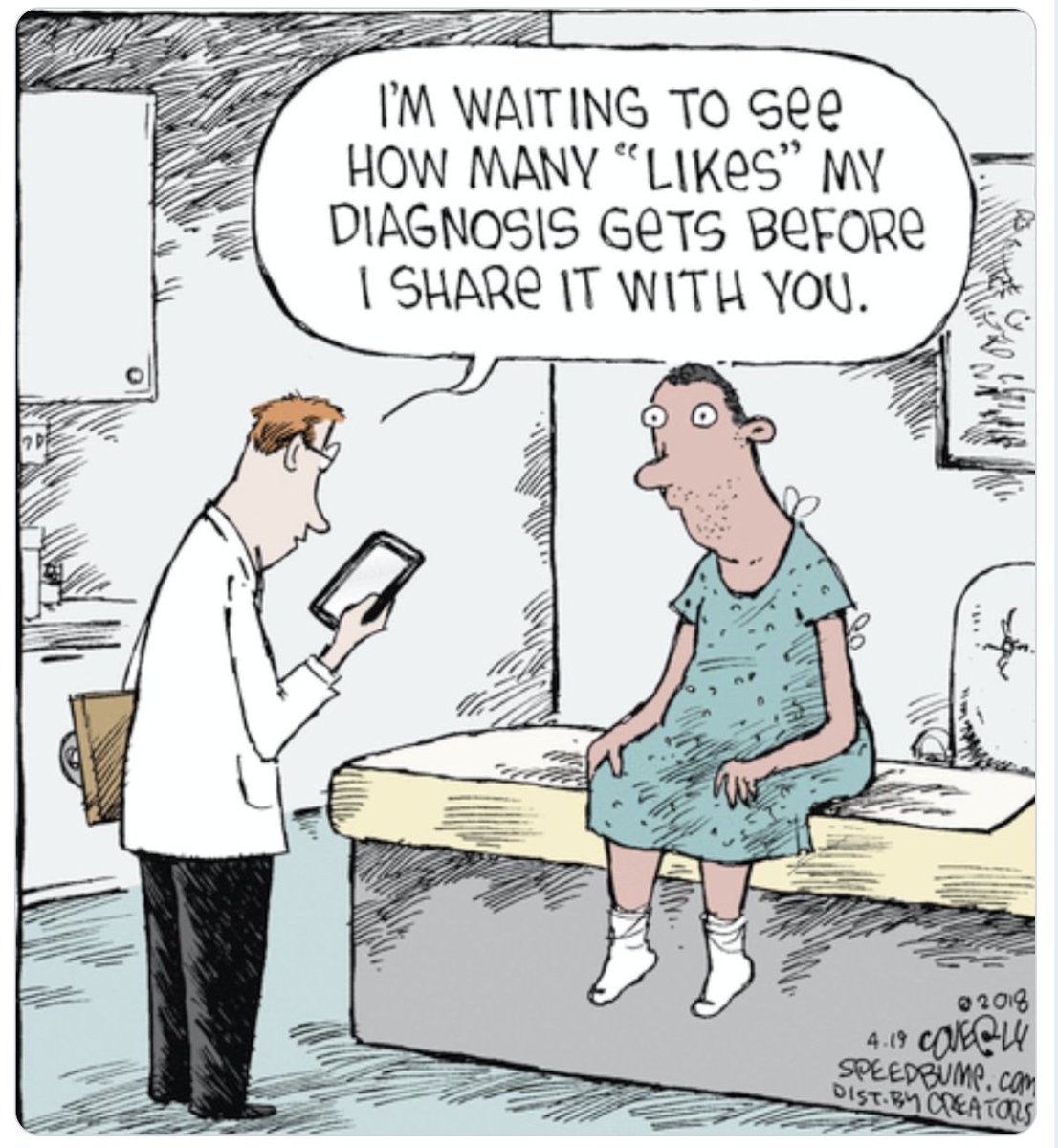A coloplast é uma velha conhecida deste blogue, "Um antropologista entra num bar... (parte II)" (Fevereiro de 2014). Uma empresa que trabalha em Mongo:
“There is no perfect product, because there is no perfect patient”Daí ter feito a associação a esta caricatura num postal de 2019:
Isto permite-me fazer a ponte para um artigo lido este mês, "How Chronic-Disease Patients Are Innovating Together Online":
"The internet gives us virtually unlimited access to each other. That deceptively simple insight is an untapped opportunity in health care. When companies are searching for their next idea, they should look to the online communities of patients who are working to solve their health care challenges on their own.[Moi ici: Empresas ainda embebidas na mentalidade da produção de produtos e que ainda não deram o salto que a Coloplast percebeu que tinha de dar, em vez de vender um produto de acordo com especificações, criar uma interacção, prestar um serviço]Uma parte importante da revolução económica do futuro vai passar por aqui. Não será a fazer mais e mais produtos, cada vez mais baratos e produzidos de forma mais eficiente, será a meter código, será a pô-los a desempenhar mais jobs-to-be-done, será a deixar de produzir produtos e a criar condições para gerar outcomes.
...
Dana has Type 1 diabetes and is a very deep sleeper. Living alone, she worried that her monitor’s alarm was not loud enough to wake her if her blood sugar fell too far in the middle of the night.
...
Dana wanted independence and spoke to device manufacturers, asking them to make louder alarms. Their answer? No. The alarms, they said, are loud enough “for most people.” In shutting down Dana, they ignored the possibility that they could learn from one of their users and improve the product.
.
Dana had an idea about how to build a custom alarm if only she could get access to her continuous glucose monitor data. Luckily, she was active on Twitter alongside other people living with diabetes (stage one of peer-to-peer health care).
.
A dad named John Costik tweeted that he had managed to free the data from his child’s device. John, an engineer, studied the device’s software and wrote a program that would send the monitoring data to a computer, phone or smartwatch. He shared the instructions online, coached other parents and people with diabetes about how do the modification, and Nightscout was born – an amateur diabetes remote monitoring system created by and for people who use continuous glucose monitors. Now, blood sugar data can be sent, for example, to a parent’s smartwatch so they can monitor their child’s levels while at school, on a field trip, or at a friend’s house. This had been impossible under the rules originally set down by the device companies." [Moi ici: Isto é voltar a uma velha série deste blogue - é meter código nisso]


%2006.21.jpeg)













Sem comentários:
Enviar um comentário